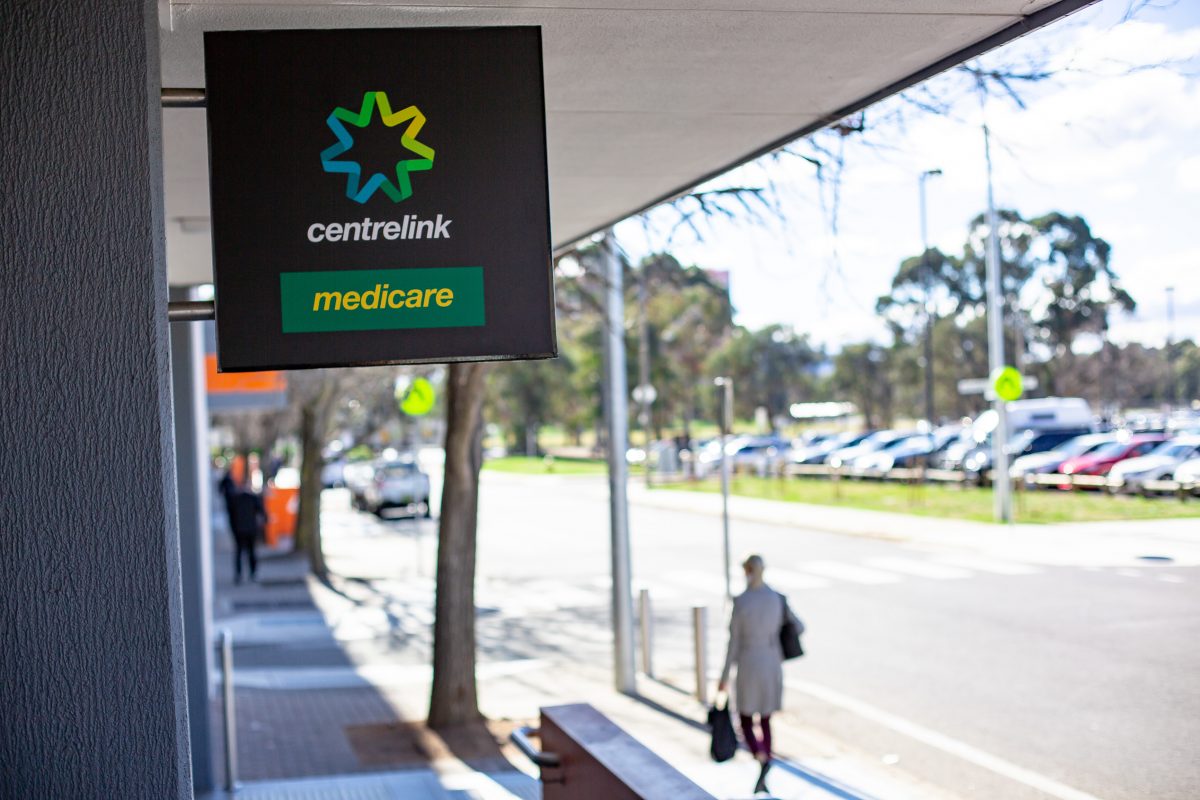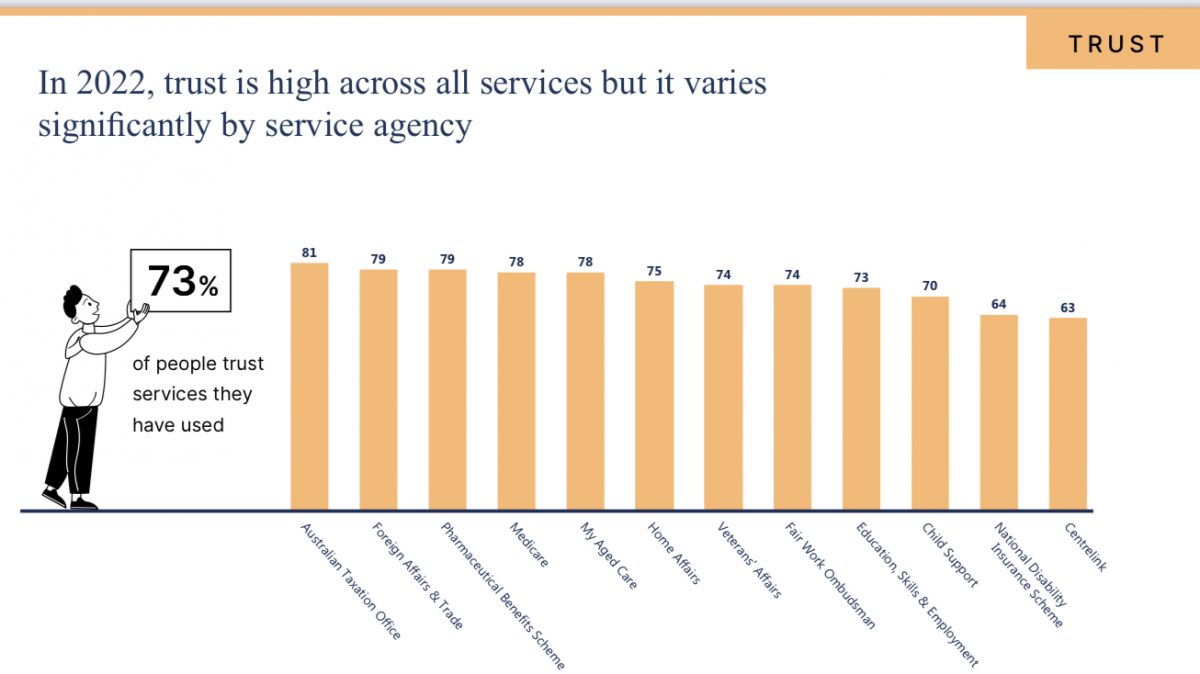
Centrelink ranked lowest of the 12 agencies surveyed. Photo: George Tsotsos.
Australians trust the Australian Taxation Office and Medicare more than they trust Centrelink and the National Disability Insurance Scheme.
That’s according to results from the 2022 Trust in Australian public services report, which found there was a healthy overall trust in and satisfaction with Commonwealth public services.
The report found 61 per cent of Australians trusted public services, and three out of four people were satisfied with the services they used.
But these levels of trust and satisfaction vary significantly between agencies.
The ATO ranked the highest in trust at 81 per cent, while Centrelink rated the lowest at 63 per cent.
Since March 2019, more than 43,000 responses have been collected from government surveys.
But the Department of Prime Minister and Cabinet’s report published this week focuses on data from more than 12,000 responses collected between July 2021 and June 2022.
Respondents were sourced from across Australia, with a diverse demographic mix.

Australians have rated their trust levels in public services they use. Image: PM&C.
Twelve agencies were the subject of the surveys – ATO, Centrelink, Medicare, NDIS, Child Support, My Aged Care, Veterans’ Affairs, DFAT, Home Affairs, Pharmaceutical Benefits Scheme, Fair Work Ombudsman, and Education, Skills, and Employment.
The study found there was a significant rise in trust in the public service during the COVID-19 pandemic.
“Trust results across most services peaked in 2021 during the pandemic,” the report stated.
“Significantly more people trusted public services in June 2020 when COVID-19 supports were introduced.
“Trust in public services has been steady for the past year, remaining above pre-pandemic levels.”
Of all states and territories, people in the ACT have the highest level of trust in public services, at 71 per cent, and the highest level of satisfaction, at 76 per cent.
The result is not surprising considering Canberra is a public sector city and home to thousands of public servants.
The survey also found women trusted public services considerably less than men (56 per cent and 66 per cent, respectively), and migrants trusted services more than those born in Australia (68 per cent and 59 per cent).
“Media commentary on women’s safety and parliamentary safety in early 2021 may have influenced both men and women’s trust to significantly decline in June 2021, and account for women’s decline being twice that of men,” the report stated.
People with disabilities, the unemployed, and those with overlapping marginalisation issues also trust public services to a lesser extent.
“Although most people have had a positive service experience, others are having a harder time using services,” the report stated.
“People with a disability are less satisfied with all public services they use and are less likely to get what they need from them than people without a disability.”
Those with a disability are more satisfied with Medicare than they are with the NDIS.
Regionally based Australia has less trust in public services than those in metropolitan cities (56 per cent compared to 63 per cent).
And more people aged 65 and over trust and are satisfied with public services than other ages.
“Three in four people are satisfied and getting what they need from public services,” the survey stated.
“Public servants are mostly seen to act professionally and make people feel respected. In 2022, satisfaction is high across all services, but experiences vary across service agencies.”





















